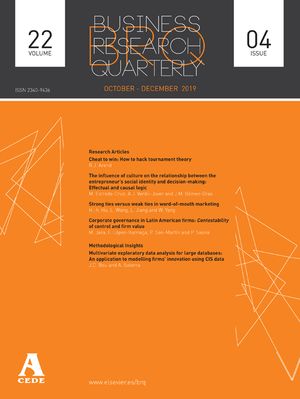Se argumenta en la literatura de marketing de servicios que el proceso de servicio puede ser el antecedente más importante de la evaluación que el cliente hace sobre su resultado, y que en ese juicio evaluativo último, el valor del servicio adquiere un papel esencial al explicar la retención del cliente. Sin embargo, las características de este proceso de creación no han sido extensamente estudiadas, especialmente en un contexto de relación entre empresas. El objetivo de este trabajo es proponer y testar un esquema conceptual que explore las relaciones existentes entre el valor, la satisfacción y la respuesta conductual del cliente, recogiendo la propuesta de Parasuraman, quien reconoce la exigua investigación desarrollada en torno a estos tópicos en el contexto business-to-business. Todo ello considerando que la delimitación de estas variables puede dar la oportunidad de examinar la existencia de heterogeneidad en el mercado y averiguar el potencial de proceder a la identificación de segmentos de clientes. Los resultados de nuestra investigación señalan que las percepciones en torno a las interacciones en un encuentro de servicio y el valor del servicio percibido son elementos clave para explicar la heterogeneidad del mercado y la respuesta conductual del cliente organizacional.
The literature on service marketing has claimed that the service process can be the most important antecedent to customer's evaluation of the service results; besides during this final assessment, the service value acquires an essential role that helps explaining the reasons why a customer remains. However, the characteristics of this creation process have not been extensively researched, especially in the context of the relationship among firms. The aim of this paper is to propose and test a conceptual outline that explores the relationships between value, satisfaction and the behavioral response of the customer. We will follow Parasuraman's approach, who admits that these topics have been scarcely investigated in the business-to-business context. We therefore can get a chance of examine the existing heterogeneity in the market and to find out the potential of this heterogeneity when identifying customers segments. The results of our research highlight that the perceptions that a customer gets from the interactions that take place during the service encounter and the perceived value are the two key elements to explain the heterogeneity of the market and the response of the organizational customer.
Las autoras agradecen a los revisores anónimos sus valiosos comentarios y sugerencias.




